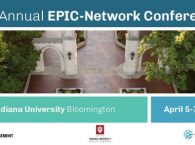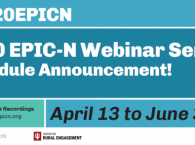Daniel Fernandez harnessing the power of higher education for communities
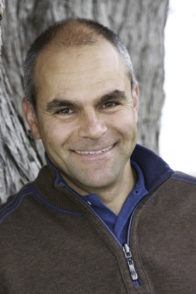
Daniel Fernandez
CSUMB EPIC Program (SCYP) Manager
Professor
Applied Environmental Science
California State University at Monterey Bay
dfernandez@csumb.edu
(831) 582-3786
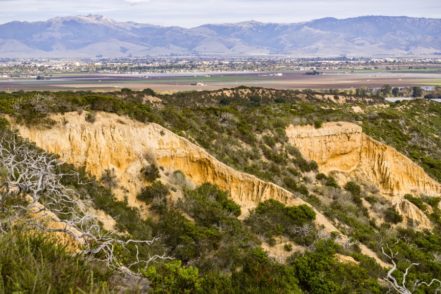
Favorite Place
So many things… I do love the bike path along Monterey Bay. I also love the studio where I practice Brazilian Jiu Jitsu (also known as Body Works) and I love the back country of Fort Ord, where there is a now a National Monument.
What was your first interaction with a school-community partnership project?
CSUMB focuses on Service Learning, so long before I looked to initiate and EPIC program here, I was aware of the unique and powerful impact the university had on the community. One project that has had as positive impact on me are the bi-monthly plantings that the Watershed Institute at CSUMB initiates within the community, working to restore native plants on the landscape.
How did you first learn about EPIC-N?
Someone from our Service Learning Program talked with Marc Schlossberg and then recommended I attend a training in 2014 (I think) in Eugene, Oregon. I did that – and the rest is history.
What are some of the top priorities you are working on this year?
Maintaining my EPIC program, the CSUMB Sustainable City Year Program (SCYP) and establishing workable partners earlier.
More effectively integrating SCYP into the classes where I teach it.
Also, spreading the word regarding the EPIC Model to other university and community leaders.
In what ways are you looking to engage, or work with others, either from within the EPIC-Network, or in general?
Seeking commonalities, ideas, and applying for funding and support en masse. Also, getting more publications on EPIC-N would be a useful thing.
Why do you think the EPIC-Network is important?
Connecting universities and regional municipalities is a great benefit of the EPIC Model. It also engages students in their communities and in helping us to better address issues of sustainability.
What is your favorite part of the EPIC-Network?
The community of individuals worldwide committed to a similar cause and the idea that drives it.
What are you hoping attendees will take with them after attending your presentation?
For my “Running on a Small Budget: Benefits of tiny EPIC-N programs,” I hope to water the seed of the idea that is is possible to start an EPIC program without much (if any) support.
For the Pecha Kucha session ‘A Tale of Two Cities”: The challenges and opportunities of working with more than one city simultaneously. Also, last year I sang a song as a part of my presentation that was related to my partnership. It seemed well received. I am hoping to do something creative again this year. It is fun for me to do that too!
Find presentation details here.
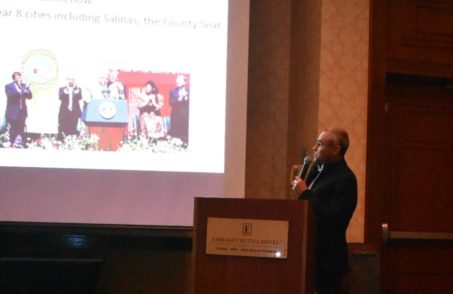
Bio
Daniel Fernandez received all of his degrees in Electrical Engineering, with his BSEE from Purdue University in 1987, his MSEE from Stanford in 1988 and his Ph. D. from Stanford in 1993. He has been a professor at CSUMB for 24 years. While at CSUMB, he has served 3 years as Chair of the Academic Senate, 6 years as Chair of the Division of Science and Environmental Policy, and 3 years as Chair of the Senate Curriculum Committee Council. He teaches physics and classes in sustainability, systems thinking, infrastructure, and capstone for Environmental Studies students. He also ran, for 9 years, a yearly conference on sustainability entitled Focus On Community And University Sustainability (FOCUS) and has brought many speakers to CSUMB, including Dr. David Orr and Dr. Fritjof Capra. He coordinated the Environmental Studies program and developed and currently manages the Sustainable City Year Program at CSUMB, which partners the needs of regional governing bodies with relevant class projects. He also served on the steering committee of the California Higher Education Sustainability Committee (CHESC). His research involves collection of water from fog and he has deployed and maintains, with help from student assistants, a network of standard fog collecting devices from central to northern California. He was the recipient of the President’s Medal for outstanding service to the university in 2012 and was named a CSUMB Faculty Sustainability Champion in 2018.

